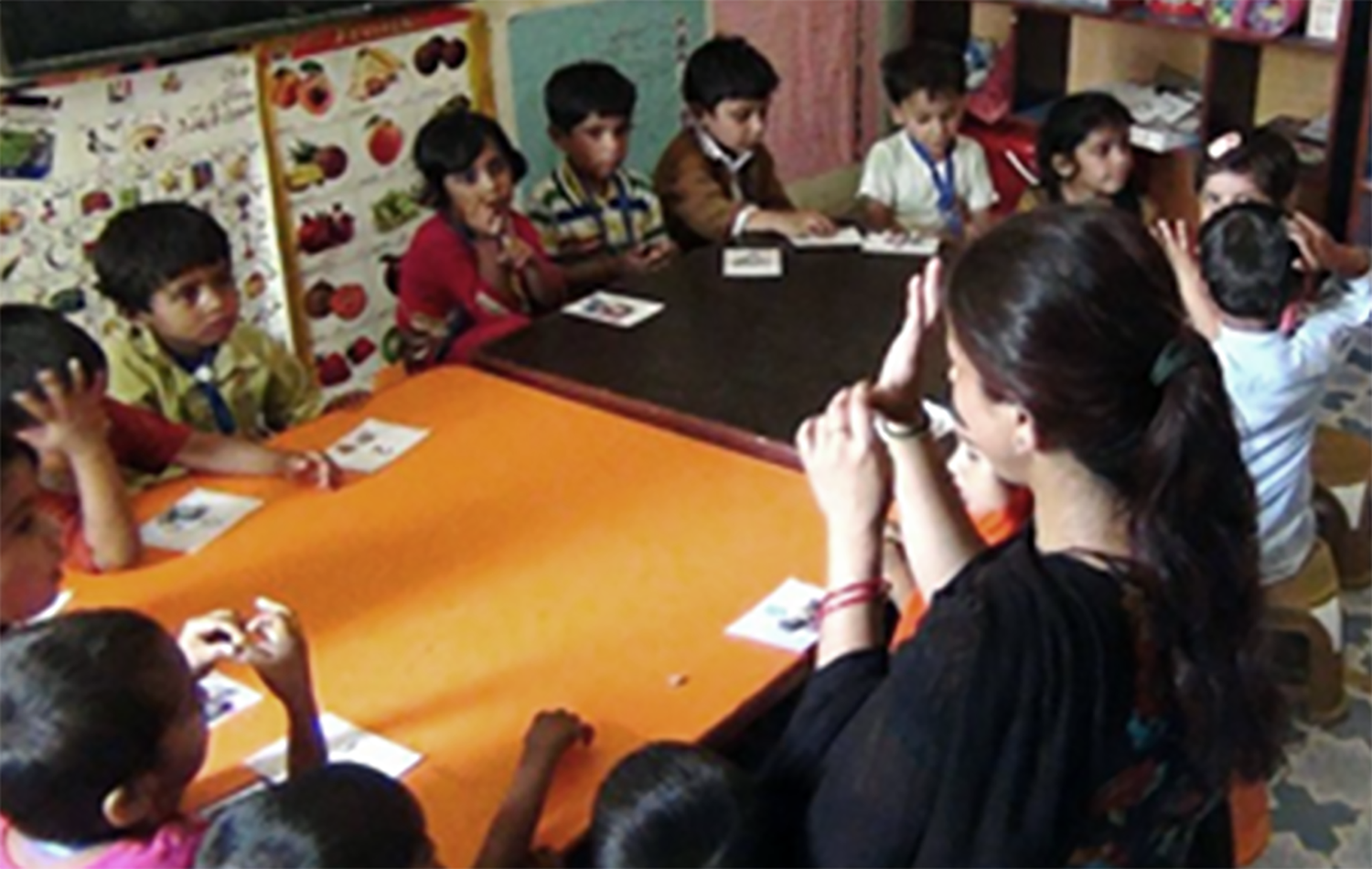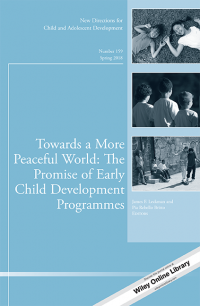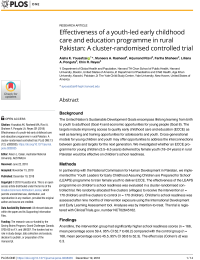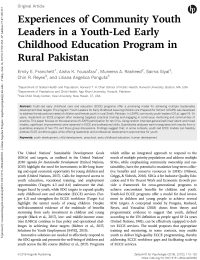Youth Leaders for Early Childhood Assuring Children are Prepared for School (LEAPS) - Pakistan
Introduction
Two sensitive periods of brain and human development occur during early childhood (0-8 years) and late adolescence/youth (18- 24 years). The Youth Leaders for Early Childhood Assuring Children are Prepared for School (LEAPS) was developed and piloted in rural Pakistan by researchers at Aga Khan and Harvard University, and in close cooperation with the Government of Pakistan’s National Commission of Human Development (GoP-NCHD) and researchers at the Yale Child Study Center. The program is a cross-generational intervention to train female community youth leaders (ages 18-24) to deliver an Early Childhood Education program to young children.
The program’s design builds upon the inter-relationships among peace, social capital, and sustainable development, and draws from existing evidence to substantiate these pathways. Results from a cluster randomized controlled trial to measure the effects of LEAPS on participating children and youth revealed children who participated in the program scored higher on the International Development and Early Learning Assessment (IDELA) for child development . Participating youth scored higher in executive function tests after participating in the program. There was also evidence of positive perceptions with regards to the mentorship relationship, sense of empowerment, and professional growth. A process evaluation framework was applied to assess fidelity of implementation, quality, and access and barriers to implementation.Heading 4
The LEAPS program is first of its kind, and follow a theory of change grounded on the dual benefits of early childhood and youth development programming as a mechanism for sustainable development and social transformation.
This research is made possible by the Saving Brains Program, Grand Challenges Canada, Seed Grant No: 0705-03.
Contributor: Angelica Ponguta, PhD, MPH, serves as Expert Consultant to the Early Childhood Peace Consortium (ECPC). She is Research Scientist in the Yale Child Study Center.
Resources
This paper argues the case for leveraging youth as an untapped resource for supplying the workforce the Early Childhood Care and Education (ECCE) system needs. Provided, is a conceptual model based on developmental theories and program examples to leverage the discourse of youth‐led ECCE programs as a viable option to address workforce gaps while benefiting both young children and youth (Ponguta, Rasheed, Reyes & Yousafzai, 2018).
Cross-generational models for young children and youth may offer opportunities to address the interconnections between Sustainable Development Goals and targets for the next generation. In this paper, we investigate whether an ECCE programme for young children (3.5–6.5 years) delivered by female youth (18–24 years) in rural Pakistan would be effective on children’s school readiness (Yousafzai, A.K., Rasheed, M.A., Rizvi, A., Shaheen, F., Ponguta, L.A., Reyes, C.R., 2018).
In LEAPS, community youth leaders (CYLs), aged 18–24 years, implement an ECCE program after receiving targeted, practical training and engaging in continuous mentoring and communities of practice. This paper focuses on the experience of LEAPS participation for ten CYLs. (Franchett, E.E. et al, 2019)
Pakistan, like many countries, faces challenges with both youth unemployment and early childhood provision. LEAPS aims to improve access to quality early childhood services and promote youth skills. Pilot evaluation finds recruitment, mentoring and community acceptance among success factors. (Yousafzai, A.K. et al. 2019)
JOIN THE CONVERSATION
For breaking news and to stay connected, follow us on social media. Sign up to get our E-News delivered straight to your inbox.






